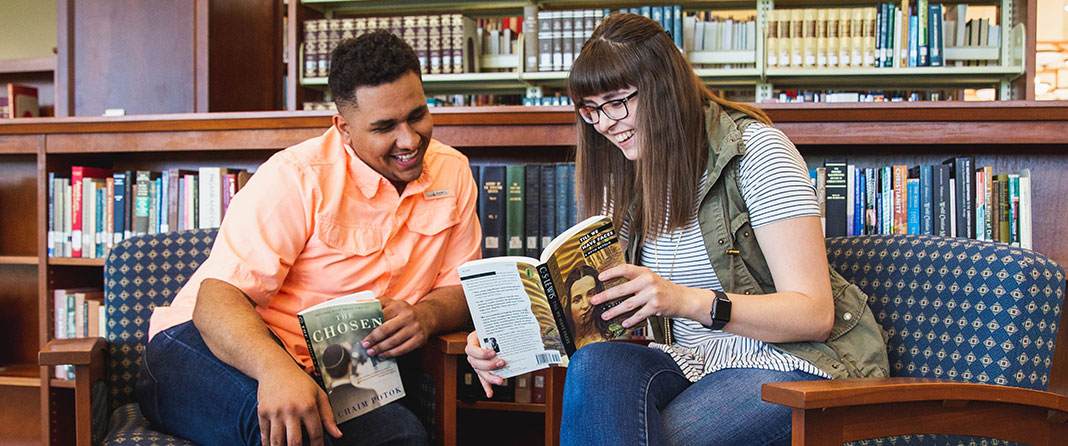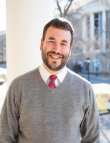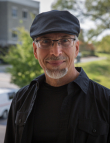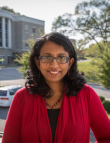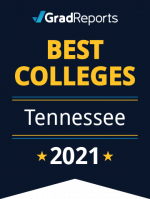Overview
Studying at Trevecca is about more than increasing one’s knowledge base; it's a process of expanding one’s mind to think in new ways.
English teachers are championed with the unique task of equipping students with skills they will use in almost every aspect of their daily lives. From reading and spelling to composition and critical thinking, English education extends far beyond interpreting classical texts. If you are interested in empowering students with these vital skills, a bachelor's degree in English Education may be right for you.

The English Education program is designed to prepare students for a teaching career in grades six through twelve. This program is a collaborative effort between the English department and the School of Education. The School of Education collaborates with area schools to provide students observation and teaching experiences to enhance your learning. Students' education experience will culminate in student teaching.
What our students say
As an English education major, I am challenged by two very different departments. I begin each semester wondering what I will learn about myself, about history, about philosophy, or what new topic I will study in my English classes. My education classes have given me the opportunity to immediately observe and apply what I am learning in the classroom through field studies and practicums, activities that help me remember the material I learn so that I can actually use it as a teacher. At Trevecca, I have grown academically and have also learned more about myself–both in classes and out.
The English department at Trevecca has really expanded the way I think about the world. The literature classes delve far beyond the surface, and class discussions require me to examine the text from every angle. I've been extremely fortunate to study both creative writing and literature in Trevecca's English department. Studying at Trevecca is about more than increasing one’s knowledge base; it's a process of expanding one’s mind to think in new ways.
News
Core Classes
American Puritans and Romantics
ENG 3100
A survey of the major authors and literary movements from the Colonial period up to the Civil War, including Edwards, Franklin, Irving, Cooper, Bryant, Poe, Emerson, Thoreau, Hawthorne, Melville, Dickinson, Whitman.
Course Hours: 3
American Realists and Moderns
ENG 3200
A survey of American literature from the Civil War to the present, including works by Twain, Crane, London, Dreiser, Anderson, Hemingway, Fitzgerald, O'Neill, Cather, Lewis, Updike.
Course Hours: 3
Medieval Literature
ENG 3510
A study of the Anglo-Saxon and Medieval period to 1400, focusing on Celtic prose and poetry, Chaucer, Langland, and continental influences.
Course Hours: 3
Shakespeare
ENG 3550
A study of representative plays by William Shakespeare within the context of their historical and cultural milieu of the Elizabethan and Jacobean theatre.
Course Hours: 3
Victorian Literature
ENG 3620
A study of the poetry, prose, and drama of the 19th century, including Charles Dickens, Robert Browning, George Eliot, Rudyard Kipling, George MacDonald, and Oscar Wilde.
Course Hours: 3
Becoming a Teacher
EDU 1020
Provides observation and participation in a public school. Field study is completed in the following areas: classroom observation, classroom material preparation, and classroom interactions to enhance the knowledge, skills, and professional dispositions required of educators. The requirements for entering the Teacher Education Program are part of the course. Graded S-U.
Course Hours: 1
Foundations of Education
EDU 1500
Surveys the historical, social, philosophical, and psychological foundations of the American school system with emphasis on an introduction to the teaching profession. Designed to be the first course taken in the teacher education program. Taken in conjunction with EDU 1020.
Course Hours: 2
Secondary Curriculum and Instruction
EDU 2300
Focuses on effective instructional methods and curriculum models for 7-12 teachers. Common Core Standards and best practices in creating enthusiastic learning environments and writing learning plans are explored. Using data to inform instruction is addressed as part of the planning component. A 20 hour field experience is required.
Course Hours: 3
Effective Classroom Environments
EDU 2556
Focuses on the major traditional and current behavior management theorists and strategies. Prepares the candidate to use effective strategies for developing a safe but invigorating classroom climate. The creation of a position plan paper and its implementation in a classroom with subsequent re-evaluation of the plan and the candidate's implementation strategies are included within this course.
Course Hours: 2
Educational Tests and Measurements
EDU 3410
Examines test construction and application of evaluation principles related to K-12. Emphasis on reading, interpreting, and using data from a variety of assessments including standardized and teacher-made achievement tests. Common Core Standards will be studied in relationship to both formative and summative assessment as instructional tools.
Course Hours: 2
Teaching Reading and Writing in the Content Areas
EDU 3510
Investigates teaching of reading and writing in the various subject matter fields at the secondary level. Stresses skills of vocabulary building, comprehension and writing as well as skills and methods of motivating adolescents to read and write. A 20 hour field experience in a secondary school is required.
Course Hours: 3
Methods and Materials for Secondary Education
EDU 4230
Examines strategies, resources, and experience in middle and secondary schools. It will familiarize candidates with methods of instruction, assessment, and classroom management appropriate in these schools, as well as organizational characteristics of each. A 30 hour field experience required.
Course Hours: 3
Education in an Urban Culture
SOC 3270
Provides an overview of the diverse educational needs, challenges, opportunities, and rewards that teachers encounter as they seek to effectively meet the needs of learners in urban schools. Students will explore the history of public schools in urban areas, the characteristics of the urban child, as well as effective teaching strategies for working with students who are identified as "at risk." This course will address the competencies, tools, and instructional strategies to effectively create positive classroom environments and assist in student achievement. Course includes a 10 hour field experience in a low socioeconomic and ethnically/racially diverse school.
Course Hours: 3
Overview
Studying at Trevecca is about more than increasing one’s knowledge base; it's a process of expanding one’s mind to think in new ways.
English teachers are championed with the unique task of equipping students with skills they will use in almost every aspect of their daily lives. From reading and spelling to composition and critical thinking, English education extends far beyond interpreting classical texts. If you are interested in empowering students with these vital skills, a bachelor's degree in English Education may be right for you.

The English Education program is designed to prepare students for a teaching career in grades six through twelve. This program is a collaborative effort between the English department and the School of Education. The School of Education collaborates with area schools to provide students observation and teaching experiences to enhance your learning. Students' education experience will culminate in student teaching.
What our students say
As an English education major, I am challenged by two very different departments. I begin each semester wondering what I will learn about myself, about history, about philosophy, or what new topic I will study in my English classes. My education classes have given me the opportunity to immediately observe and apply what I am learning in the classroom through field studies and practicums, activities that help me remember the material I learn so that I can actually use it as a teacher. At Trevecca, I have grown academically and have also learned more about myself–both in classes and out.
The English department at Trevecca has really expanded the way I think about the world. The literature classes delve far beyond the surface, and class discussions require me to examine the text from every angle. I've been extremely fortunate to study both creative writing and literature in Trevecca's English department. Studying at Trevecca is about more than increasing one’s knowledge base; it's a process of expanding one’s mind to think in new ways.
